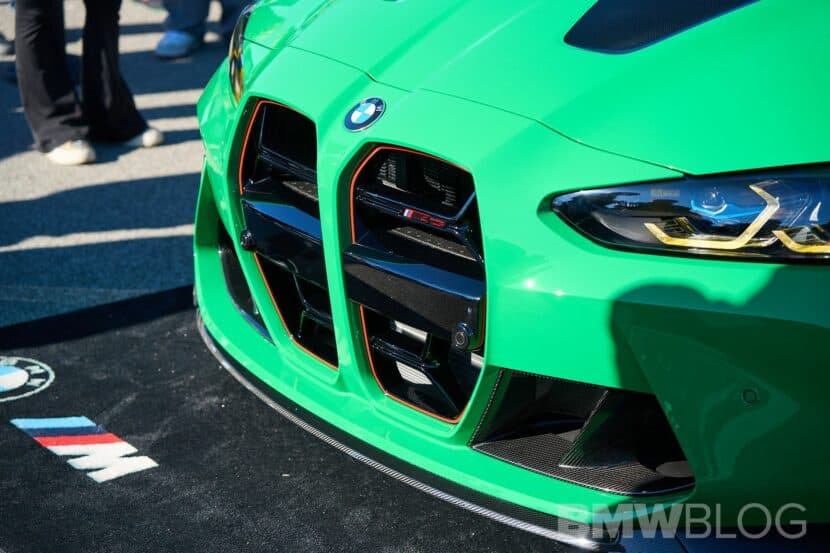The fastest and most powerful M3 CS made its public debut this weekend in Daytona where we had the opportunity to chat with the man himself – M CEO Frank van Meel. We get to discover what makes the Clubsport special and learn about all the upgrades that have been implemented over the M3 Competition xDrive.
The idea was to maximize performance above all else, which is why the engineers decided to go with xDrive and an automatic transmission. AWD (with selectable 2WD mode) does a better job at putting all that power onto the road while the auto always changes gears quicker than even the most experienced driver. Since the M3 Competition and the M3 Competition xDrive come exclusively with an automatic, it’s not a surprise the CS also does away with the clutch pedal.
As it turns out, you can’t build an M3 CS from a Competition xDrive since aside from the 40-horsepower bump, the super sedan gets bespoke suspension tuning. It also boasts a tweaked chassis along with semi-slick tires developed specifically for this car. Frank van Meel told us the carbon fiber hood with the exposed areas combined with one of the four colors available is exclusive to the special edition. In addition, the bi-color carbon bucket seats are only for the CS.
To refresh your memory, BMW is selling the M3 CS in Signal Green and Frozen Solid White Individual paints along with the standard Black Sapphire and Brooklyn Grey. The M division’s head honcho told us he’d have the car in the most striking configuration by combining Signal Green with the Gold Bronze wheels, as seen in Daytona.
As to why the M3 CS comes with a rear bench instead of two individual seats like the M5 CS had, BMW believes the typical M3 buyer tends to prefer the practicality of a three-seat rear bench. In an effort to shave off 75 pounds from the car, the cupholders and rear climate vents had to be removed.
Following its premiere at Daytona, the M3 CS will hit the assembly line in March and will be produced only for 12 months. We’ve been told anywhere between 1,700 to 2,000 cars are going to be manufactured, with a possible extension if there’s strong demand and available capacity at the Munich plant.

